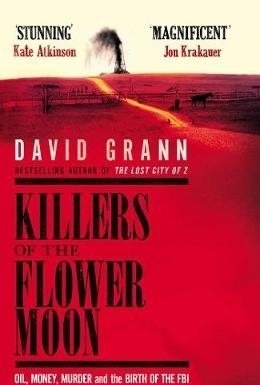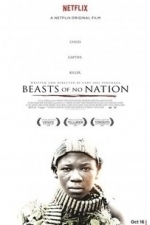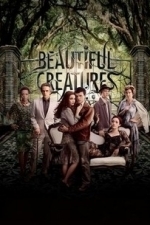Hazel (1853 KP) rated Killers of the Flower Moon: The Osage Murder and the Birth of the FBI in Books
Dec 7, 2018
It is well known that throughout history, facts have been omitted from history books. Written accounts of events ostensibly make important figures and countries appear to be in the right, whereas reality reveals otherwise. One such exclusion is the fate of the Native Americans inhabiting the southern states at the beginning of the 1900s. Children are brought up to believe the stories that “Red Indians” are bad and the cowboys are good, but this was unlikely the case. David Grann has researched into a particular period of Native American history that most people may never have heard of.<I> Killers of the Flower Moon</I> reveals the horrors innocent people faced at the hands of perfidious criminals.
The majority of the book is written as a third person narrative, recounting the lives of some of the members of the Osage Indian Nation in Oklahoma. White people, believing themselves to be superior, had forced the natives off their homelands and onto rocky, unwanted ground. What they did not anticipate, however, was the abundance of oil residing beneath the surface. The Osage went from being oppressed to being the wealthiest people in the state. Full of avarice, the whites were not going to let them get away with this fortune for long.
David Grann takes a particular interest in Mollie Burkhart, an Osage member with a white husband. Mollie had three sisters, but within a few short years they were all dead, and so was her mother. Believing they had been murdered, Mollie fears for her life. Other Osage members were also being killed, as well as those who tried to investigate the spreading slaughter. However, the case remained stubbornly unsolved.
Nevertheless, there was still hope for Mollie after the arrival of Tom White, an agent of the soon to be known as Federal Bureau of Investigation (FBI). Determined to get to the bottom of the so-called Reign of Terror, Tom and his team carefully analyse the behaviours and motives of the disingenuous citizens, narrowing down the suspects until eventually finding their duplicitous killer.
Learning about this unknown period of history is eye opening and offers a completely new view on the relations between whites and Native Americans. It was a time of prejudice and racism, not unlike the attitude towards black people emphasised with the civil rights movement in the mid-1900s. Greed was a significant motivator, particularly where making money was involved. But, David Grann does not stop here.
The final section of <i>Killers of the Flower Moon</i> is written from the author’s perspective. As a staff writer at <i>The New Yorker</i>, the evidence of the Osage murders case intrigued David Grann, but he was concerned about some unresolved holes in the story. Determined to uncover the truth, Grann conducted his own research to discover the culprits behind the undocumented murders unrelated to Mollie Burkhart’s family. What he stumbles on highlights the severity of the dark fate the Osage Indians were threatened with.
Despite being written as a narrative, it is obvious that <i>Killers of the Flower Moon</i> is a work of non-fiction. It lacks emotion and character insight, however, since it is not meant to be a fabricated story, these elements are not required. Instead, it shocks and disturbs the reader with its unbelievable truths.
An extensive biography proves the authenticity of David Grann’s revelation. With the reinforcement of FBI files, jury testimonials, statements, court transcripts, letters, telegrams, diaries and confessions, Grann produces a strong historical record of events that should not be glossed over. Without authors and books such as <i>Killers of the Flower Moon</i>, people will blindly go around believing falsehoods. The truth needs to be discovered, and readers can start by reading this book.
Kirk Bage (1775 KP) rated Beasts of No Nation (2015) in Movies
Mar 3, 2020 (Updated Jul 9, 2020)
Cary Joyi Fukunaga’s personal opus Beasts of no Nation, made for Netflix but good enough for a cinema release, falls into the category of films that have garnered enough critical acclaim to demand consideration for the top 200. It is the kind of film that you would always recommend, but may choose to overlook in search of a more basically entertaining watch.
Fukunaga has a fine pedigree already in his career, with credits on True Detective and the under-rated Sin Nombre from 2009. He has also been tasked with directing duties on the delayed Bond No Time To Die, which we hope to see before the new year now. He is a hands on, no messing about kind of guy, seemingly, taking on writing and cinematography duties also for this sad tale of child exploitation in an unnamed African war.
At times, it borders on documentary style, with an eye for strong visual images and extended silences, favoured over extraneous exposition and needless dialogue. A technique that makes the subject matter all the more uncomfortable to watch. Idris Elba adds big name weight in a fine supporting role, but the lion’s share of acting responsibility falls to young Abraham Attah, who is nothing short of astonishing in the most harrowing moments of this stark and sincere story.
I have to confess, this was another pre-lockdown watch for me, and as much as I can recall the feel and impact of it as a whole, I would struggle to talk about it in any detail after one viewing three months ago. And that is partly the reason it won’t quite make the lower benchmark of a strong 73 Decinemal score; for all its power it just isn’t quite memorable enough on every level, in the way something like City Of God, or even Beasts of the Southern Wild most definitely are.
Perhaps those are unfair comparisons, but it strives for the impact of the former without the flair, and has an independant feel without the charm of the latter. Not that flair or charm are priorities here. It simply wants to show you an issue you may not have been overly aware of, and demands that you empathise both with the complexity of the problem and with the tragic journey of Agu – a child robbed of all innocence by a terrible world.
The photography sits with the strong performances as a notable highlight; giving contrast to the devastation, depredation and desperation under the skin, and showing an angry beauty that dances beside it, showing brief moments of hope when we need them most, and therefore avoiding the trap of being too brutal to enjoy on any level. Which is a mistake similar films can fall prey too.
Violence and war are not light subjects. When the focus is also the lost soul of a child, the tightrope of melodrama and sentimentality is very fine. All involved here walk that line expertly, never once resorting to having to buy your care with familiar Hollywood tricks. In fact it couldn’t be further from Hollywood if it tried. And the drama is all the better for that.
A solid, fine movie, that is narrowly short of being truly great. But you should most definitely see it at some point if you haven’t already.
Gareth von Kallenbach (980 KP) rated Beautiful Creatures (2013) in Movies
Aug 7, 2019
With the beginning of the first day of school a newcomer named Lena Duchannes (Alice Englert) seems to be an outcast because of her families history. Capturing the attention of Ethan he becomes more and more intrigued with her, despite the awful things that the other classmates are saying about her. Lena is the niece of Macon Ravenwood (Jeremy Irons), the owner of the one and only mysterious Gothic Ravenwood Manor. Lena has uncontrollable powers proving that some of what her classmates have been saying is true. Lena has until her sixteenth birthday to undergo the Claiming, a process that throughout the years makes a caster go to the light side or the dark side. The film also features an allstar cast such as: Alden Ehrenreich, (“Tetro”), Emmy Rossum, Thomas Mann, Emma Thompson, Rounding out the cast are Eileen Atkins, Margo Martindale, Zoey Deutch, Tiffany Boone, Rachel Brosnahan, Kyle Gallner, Pruitt Taylor Vince and Sam Gilroy.
The film Beautiful Creatures is a supernatural love story with some of the same ideas and themes as most of these supernatural teen movies based off of best selling novels. However, Beautiful Creatures was a refreshing take on the story of two young lovers, one who is human and the other who is a supernatural being. The scenery and use of the deep southern backdrops added to the mystery of the story. I have not read the book though I plan to, I am unable to comment on how close the movie was to the book. The special effects in the film were not overdone or out of place and were appropriate to each specific scene. Some comedic relief is found throughout the film and is not out of place. The flow of the story is also flawless including the music used for the soundtrack.
This film has been rated PG-13 for violence, scary images and some sexual material. I would recommend this to audiences of a variety of ages from young teen to older adult. Yes this film may have some similarities to other teen/supernatural films but all in all it is a film I definitely would recommend to our readers and I can’t wait for the second installment.

Star Chart Infinite
Education and Reference
App
Buy Star Chart Infinite and get all the in-app upgrades of Star Chart included for free! Star Chart...

casadeferro.com
Podcast
who is ricardo ferro? Ricardo is also known as DJ Ferro since his debuts in the world of djing,...

DishPointer AR Pro
Productivity and Education
App
Point your phone towards the sky and see on the live camera screen where the satellites are, any...

DishPointer Augmented Reality
Productivity and Education
App
Point your phone towards the sky and see on the live camera screen where the satellites are, any...

Happy Deepavali Diwali Greeting Cards Wish
Lifestyle and Social Networking
App
Celebrate the Festivals of lights and express your love to your loved ones by using and sending...

App in the Air
Travel and Productivity
App
App in the Air - your personal flying assistant that keeps you up-to-date with your flight: real...

Boarding Pass Flight Check In
Travel and Navigation
App
Are you a frequent flyer? Tired of searching for itineraries in your emails and of having the...


